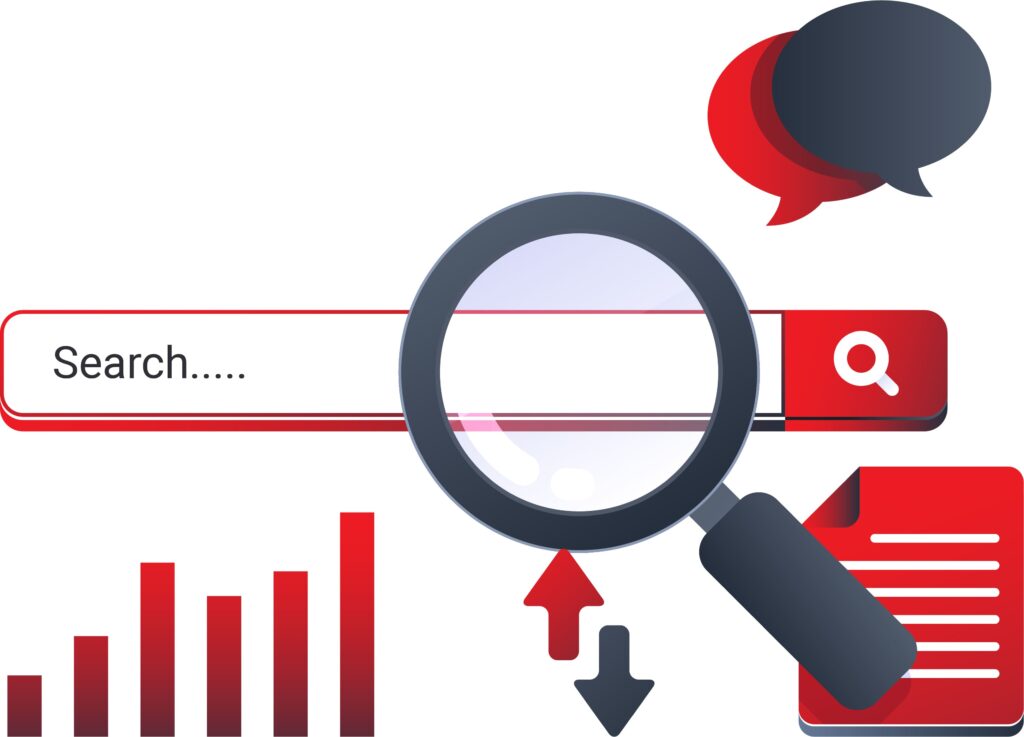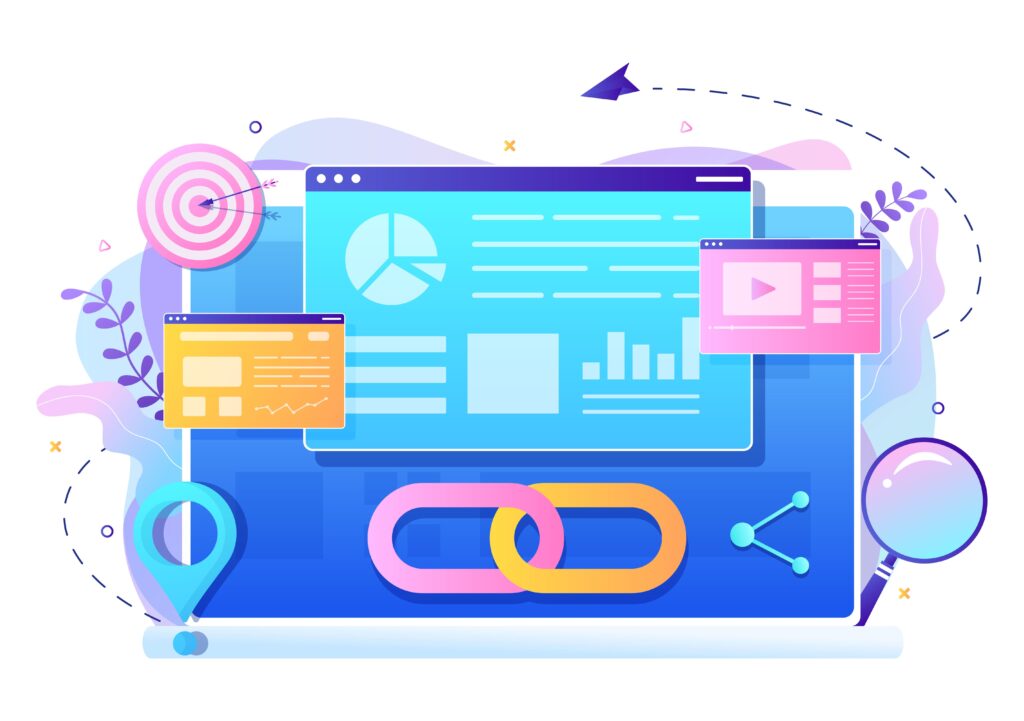How to avoid the Google penalty? As an online business owner or marketer, your website’s online visibility is crucial. Search engines like Google drive a significant amount of traffic to websites, and ranking high in the search engine results pages (SERPs) can mean the difference between success and failure.
However, various Google penalties can cause your website’s ranking to drop, resulting in a significant decrease in traffic and revenue. In this article, we will discuss the various Google penalties and provide tips on how to avoid them.
What Are Google Penalties?

Before knowing how to avoid the Google penalty? You must know what the Google penalties are. Let’s have a look.
1. Manual Penalties:
Google’s team of human reviewers can issue manual penalties if they find your website in violation of Google’s webmaster guidelines.
Manual penalties can be severe, resulting in your website being removed from Google’s search results. Here are some of the most common reasons for manual penalties:
2. Keyword Stuffing:
Keyword stuffing is the practice of adding too many keywords to your website’s content, resulting in low-quality content that provides little value to users.
Google’s algorithms have evolved to detect keyword stuffing, and websites that employ this tactic are at risk of receiving a manual penalty.
3. Cloaking:
Cloaking is the practice of showing different content to search engines and users. This is usually done to manipulate search engine rankings.
Google considers cloaking to be a violation of its webmaster guidelines and can issue a manual penalty.
4. Link Schemes:
Link schemes is a practice that manipulates links to your website, with the aim of improving your search engine rankings. These practices include purchase or sale.
the links, participating in link exchanges, and using automated link-building tools.
Google’s algorithms can detect these practices, and websites that engage in link schemes are at risk of receiving a manual penalty.
5. Thin Content:
Thin content refers to low-quality content that provides little value to users.
Google’s algorithms prioritize high-quality content, and websites with thin content are at risk of receiving a manual penalty.
6. Algorithmic Penalties:
Google’s algorithms are constantly evolving, and websites that do not keep up with these changes are at risk of receiving algorithmic penalties.
Algorithmic penalties are automatic penalties issued by Google’s algorithms, and they can be challenging to identify and fix. Here are some of the most common reasons for algorithmic penalties:
7. Panda:
The Panda algorithm penalizes websites with low-quality content.
Websites with duplicate content, thin content, and content that is not relevant to the user’s search query are at risk of receiving a Panda penalty.
8. Penguin:
The Penguin algorithm penalizes websites with manipulative link-building practices.
Websites with low-quality links, link farms, and link exchanging are at risk of receiving a Penguin penalty.
9. Hummingbird:
The Hummingbird algorithm penalizes websites with poor user experience. Websites with slow page speed, low-quality content, and poor navigation are at risk of receiving a Hummingbird penalty.
10. Mobilegeddon:
The Mobilegeddon algorithm penalizes websites that are not mobile-friendly. Websites that are not optimized for mobile devices are at risk of receiving a Mobilegeddon penalty.
- Consider Going Through: How To Measure Your Content Marketing Effectiveness?
Tips to Avoid Google Penalties

Here is the answer for how to avoid the Google penalty? By following these tips you can avoid the upcoming chances of the Google penalties.
1. Follow Google’s Webmaster Guidelines:
Google’s Webmaster Guidelines provide best practices for creating high-quality, user-friendly websites. Following these guidelines can help you avoid manual penalties and improve your website’s search engine rankings. Some of the most important guidelines include:
a) Create high-quality content that is relevant to your users’ search queries.
b) Use descriptive, keyword-rich titles and meta descriptions.
c) Use header tags to structure your content.
d) Use alt tags to describe images.
e) Use a sitemap to help Google crawl your website.
f) Avoid deceptive practices such as cloaking, hidden text, and keyword stuffing.
2. Avoid Link Schemes:
Link schemes are a violation of Google’s guidelines and can result in manual or algorithmic penalties. To avoid link scheme penalties, focus on building high-quality, relevant links naturally. Here are some tips:
a) Create high-quality content that is shareable and useful to your target audience.
b) Reach out to relevant websites and bloggers to request a link to your content.
c) Participate in social media to build your online presence and attract links.
d) Avoid buying or selling links, participating in link exchanges, and using automated link-building tools.
3. Monitor Your Website’s Performance:
To avoid algorithmic penalties, it’s important to monitor your website’s performance regularly. Here are some metrics to track which will help you to know the tips on how to avoid Google penalties.
4. Organic Search Traffic:
Check your website’s organic search traffic to identify any drops or fluctuations.
5. Keyword Rankings:
Monitor your website’s keyword rankings to ensure they are not decreasing.
6. Backlink Profile:
Monitor your website’s backlink profile to ensure it’s healthy and not full of low-quality or spammy links.
7. Page Speed:
Check your website’s page speed to ensure it’s fast and optimized for mobile devices.
8. Keep Your Website Up-to-Date:
Google’s algorithms are constantly evolving, so it’s essential to keep your website up-to-date with the latest best practices. Here are some tips:
9. Stay Informed:
Keep up-to-date with Google’s algorithm updates, webmaster guidelines, and industry news.
10. Update Your Website:
Regularly update your website’s content, metadata, and design to ensure it’s fresh and user-friendly.
11. Optimize For Mobile:
Ensure your website is optimized for mobile devices by using responsive design, optimizing images, and compressing files.
12. Use Structured Data:
Use structured data to help search engines understand your website’s content and improve your search engine rankings.
13. Use Google’s Webmaster Tools:
Google’s Webmaster Tools provide valuable insights into your website’s performance and can help you identify and fix any issues that may result in penalties. Here are some features of Webmaster Tools:
14. Search Analytics:
Use all types of Search Analytics reports to identify the keywords and pages that can drive traffic to your website.
15. Crawling Errors:
Using the Crawl Errors report can identify the issues with the website’s crawling ability. Such as broken links or blocked pages from crawling.
16. Mobile Usability:
Use the Mobile Usability report to identify any issues with your website’s mobile usability, such as text that is too small or links that are too close together.
17. Manual Actions:
Check the Manual Actions report to see if your website has received any manual penalties.
Conclusion
Hope you get the answer on how to avoid Google’s penalty? Google penalties can have a significant impact on your website’s search engine rankings and traffic. To avoid penalties, it’s important to follow Google’s webmaster guidelines, avoid the link schemes, monitor your website’s performance, keep your website up-to-date, and use Google’s Webmaster Tools. By taking these steps, you can ensure your website is optimized for search engines and provide a high-quality user experience for your target audience.
Additional:




